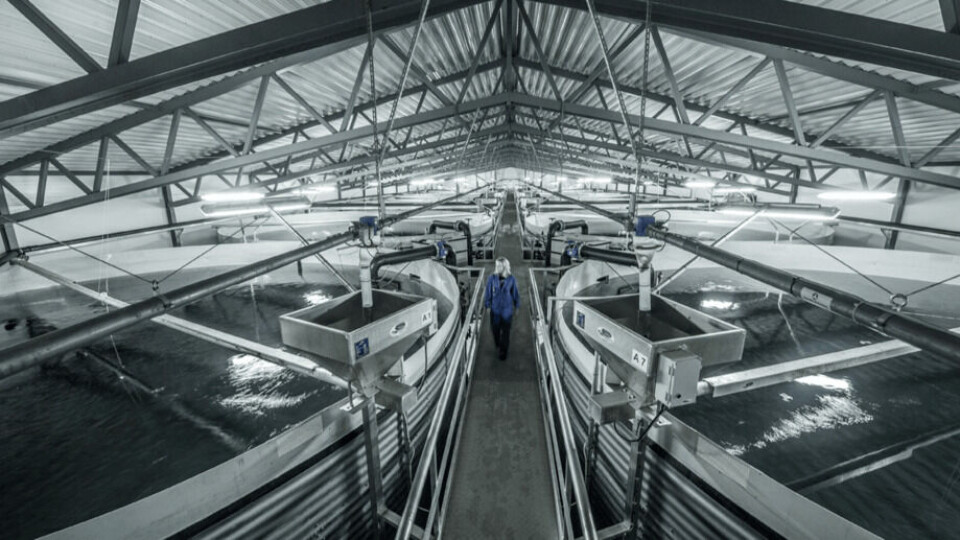
Cooke puts €10.3m smolt RAS on hold due to Covid-19
Canadian salmon farmer Cooke Aquaculture has cancelled a €10.3 million contract with Norwegian aquaculture supply giant AKVA group for a recirculating aquaculture system (RAS) smolt plant in Chile because of the Covid-19 pandemic.
Cooke’s communications chief, Joel Richardson, said: “Given global pandemic challenges, Cooke Aquaculture decided it was appropriate to defer our RAS smolt facility in Chile until the situation improves.
“At this time, our focus remains on taking all reasonable steps to protect our people and maintaining our current operations to serve customers.”
Bigger smolts
The Canadian family-owned salmon farmer intended to use the plant to grow bigger smolts for its Chilean operation. It currently transfers smolts to sea at around 120 grams and planned to increase that average to 300 grams.
AKVA group Chile S.A., a wholly owned subsidiary of AKVA, entered into a sales and supply contract with Cooke in December. The companies had previously reached a cooperation agreement for the potential delivery of several large land-based smolt plants.
AKVA announced news of the contract cancellation in a market announcement today, in which it also said that a project to supply a full grow-out RAS for Nordic Aqua Partners had been delayed.
Technology supplier
“AKVA group Land Based A/S, a wholly owned subsidiary of AKVA group ASA, was the chosen technology supplier of the full grow-out RAS project for Atlantic Salmon to Nordic Aqua Partners, in China (the "Project”),” stated AKVA.
“As noted in the stock release on 20 December 2019 AKVA’s delivery was dependent on certain conditions to the Project’s equity financing. The initially committed equity financing has now been cancelled due to the Covid-19 situation. Nordic Aqua Partners will continue the process to have the project fully financed later this year.”
The value of AKVA’s delivery was estimated to be NOK 500 million from 2020 to mid 2023. AKVA was due to supply €3.1 million in equity.
The targeted harvest volume of the Project is 8,000 tonnes by 2026.























































